No dig gardening explained! Your complete guide on No-dig gardening
No dig gardening has been in popularity in recent years, but what exactly it is, and how can it help the garden?
Organic produce growers typically adopt the no-dig gardening strategy, but it also applies to aesthetic plants.
Rather than digging up the soil to remove weeds, this approach involves applying organic ingredients to the soil surface, such as garden compost or well-rotted manure, to simulate natural decomposition processes that occur when plants die, and leaves fall.
Rather than digging into the soil, the no-dig gardener encourages plants, fungi, and soil organisms to break down and absorb organic materials.
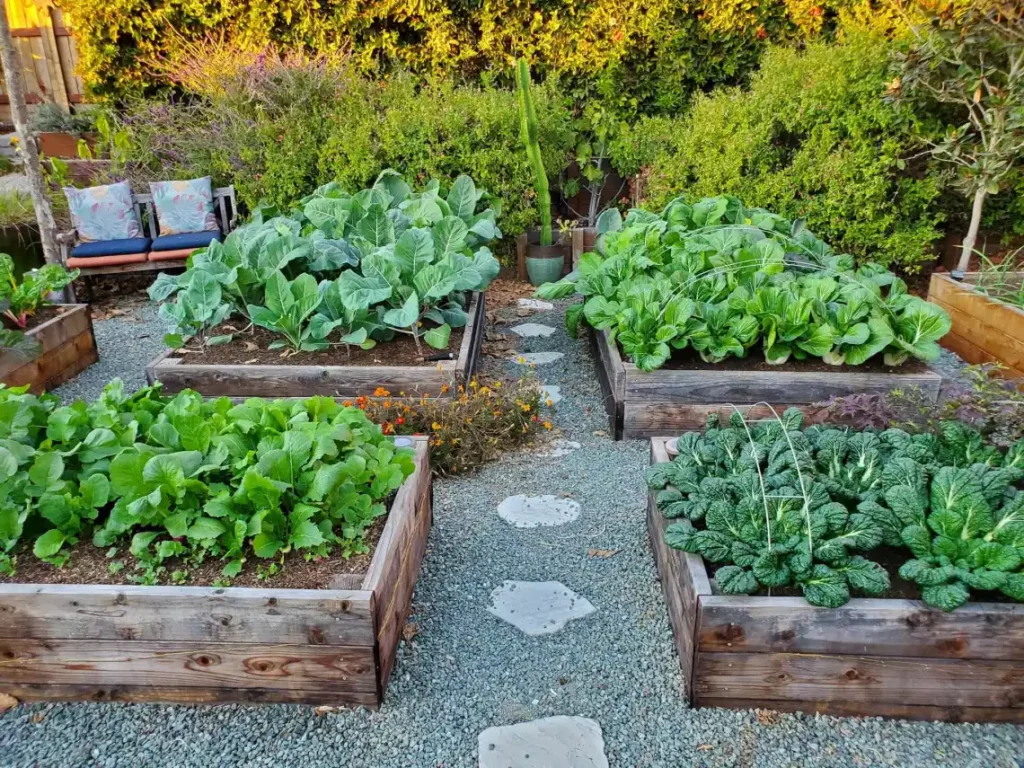
The soil structure is not disturbed as a result of the no-digging. Worms and other species are also not disturbed; therefore, the soil’s ecology remains intact. Vegetable yields are higher when plants are on no-dig soils. Furthermore, it’s an excellent choice for time-crunched gardeners who don’t have the time to spend digging over soil beds.
How do you begin with a no-dig bed while gardening?
- A no-dig bed can be constructed in a variety of ways.
- Create a lasagna garden- a flat raised bed with layers of biodegradable material.
- Try hugelkultur, which are beds made in a similar way but with a core of decaying wood in the center and a mounded appearance.
- Bring straw blades, cover them with compost, and plant into those instead of the soil.
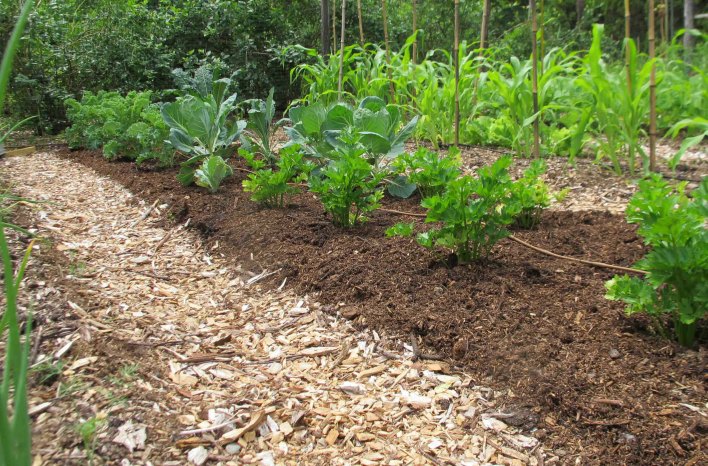
What are the requirements for no-dig gardening?
- A plot of land or an allotment
- Cardboard or newspaper
- water access
- manure
- organic waste/compost
- seeds/plants
- gardening gloves and essentials
How long does it take for a no-dig garden to decompose?
The amount of time it takes for the materials in your no-dig garden to deteriorate is dependent on the materials used. As with a cold composting system, the materials typically decompose in 6 to 12 months to produce rich compost or humus.
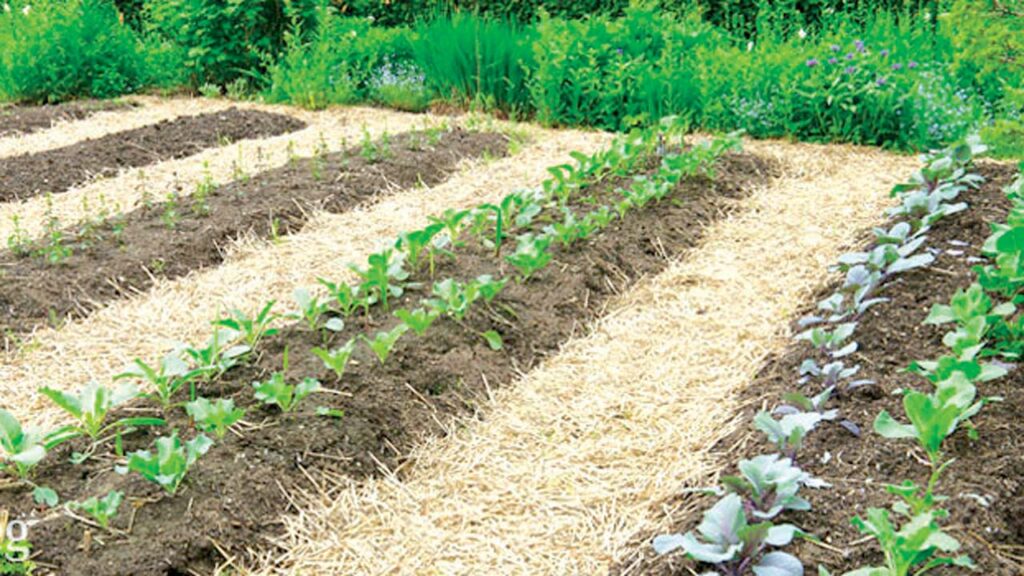
Where shall you have a no-digging yard?
It may easily be spread over old soil, leaving grass and weeds alone. The mulch on the top will be enough to bury them, with no digging required for any soil other than a base site! It is best to grow vegetables apart from big trees and hedges as they consume all the moisture.
There are three critical points of the no-digging method:
The soil has not been disturbed, enabling its organisms to work and multiply.
The majority of soil already has a structure for roots to develop and nutrients to sustain plants, as well as organisms that support development.
When there is no excavating, you just build on top of it. Organic material is supplied to organisms on the surface, faster.
Allow the soil to work its magic. When plants demand nutrients, they become available owing to a combination of air and soil temperatures that are high enough for photosynthesis to occur. Fungus seeks food and moisture from roots, and fungi flourish in undisturbed situations, which is why no-dig soil develops more quickly.
Plant nutrition is based on fungi rather than on nutrients.
When there is no digging, plants are better equipped to get food. Compost mulches feed soil organisms quickly and boost their activity, improving soil structure. Compost is good for mulching in wet situations since it provides no suitable habitat for beneficial organisms.
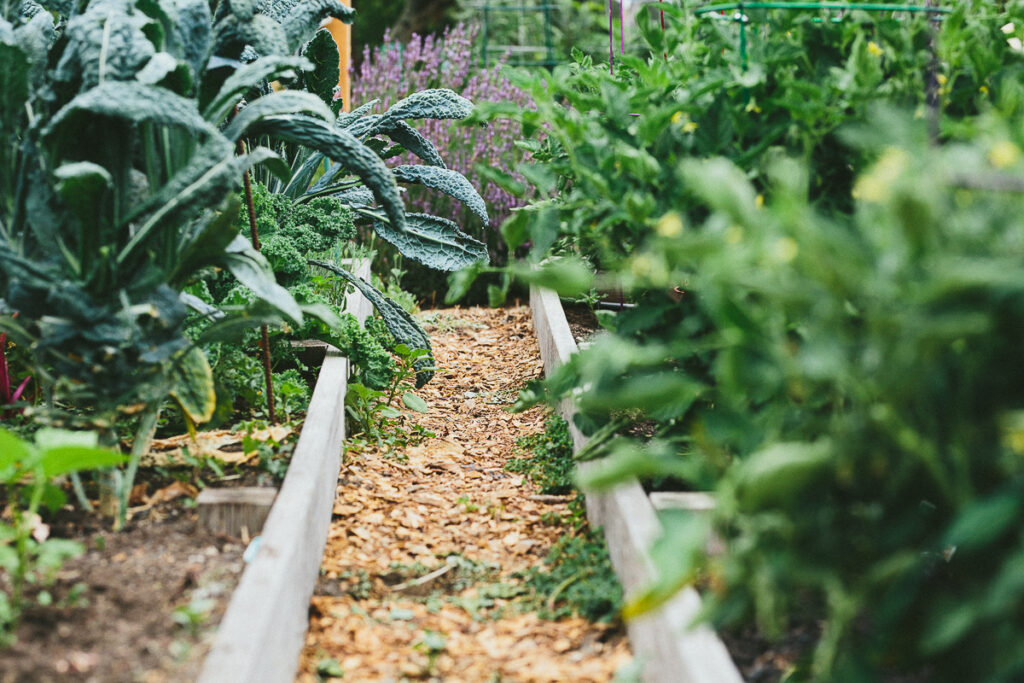
What exactly is the no-dig gardening method?
Plants have evolved to flourish in soil’s natural, layered structure. As it sits on the surface, dead plant debris gets invaded by bacteria and fungi. These helpful microorganisms start the process of converting organic waste into humus, or natural compost.
Earthworms and beetles, for example, eventually take the decomposed material deeper into the soil, where plant roots may receive nutrients released by the soil.
The work of living soil organisms helps to maintain a well-aerated environment, which allows for deep rainwater absorption and healthy plant development.
Nature’s slow-release fertilizer is consistent replenishment of nutrient-rich organic material, which feeds the entire ecosystem. This is the system used by gardeners who practice no-dig gardening. Instead of a shovel, they just apply compost to the soil surface at regular intervals and let the soil-dwelling organisms do the rest.
In this approach, the only soil disturbance is the little, cultivation necessary to eradicate weeds or plant seeds and seedlings. Less soil disturbance leads to fewer weed seeds reaching the surface, while compost layers bury many extra weed seedlings before they can thrive.
Because the soil does not need to dry up before tilling, no-dig gardeners may plant their gardens earlier in the season than traditional gardeners.
Why shouldn’t we dig the garden?
Gardeners and farmers have been disturbing the soil for several years. Tilling loosens and aerates the soil, eliminates weeds and previous crop residues, and increases soil microbial activity in the near term.
Starting the gardening season with a blank slate feels natural for many individuals. Excavating the soil has negative implications that impair plant health, weed management, and total yield.
Tilling disturbs the natural structure of the soil and lowers the populations of beneficial organisms that are essential for releasing natural soil fertility. Tilling’s mechanical action can kill more notable species like worms and beetles, and it encourages bacteria to devour an excessive quantity of organic materials.
Tilling also brings latent weed seeds to the surface of the soil. Whether it’s a new garden or one that has been tilled on a regular basis for many years, using the no-dig approach can result in fewer weeds and pests, as well as good plant health and output.
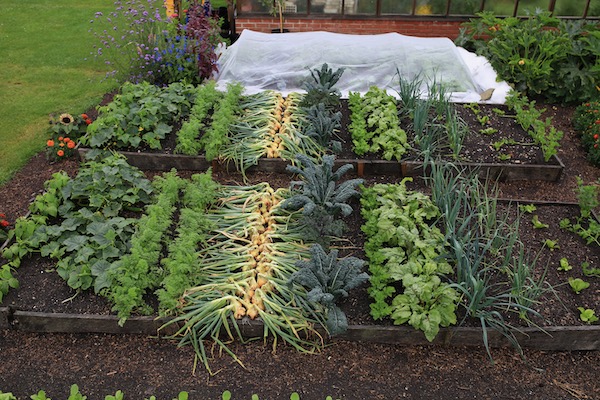
Why is no-dig gardening beneficial?
A no-dig garden bed offers various benefits, including increased yield, fewer weeds, and less time spent on chores. Most weed seeds and early seedlings are smothered by compost, which also provides a rich supply of nutrients.
No-dig gardens use less fertilizer as well. High-quality compost applied annually meets the nutritional needs of two or more garden crops. Millions of beneficial bacteria in compost convert organic matter into natural plant food at a pace that garden plants can ingest, limiting nutrient runoff.
Advantageous to your health
Gardening is excellent exercise, but digging over a bed may be too much for you if you’re not physically fit, especially if the ground is still cold and wet. This may discourage individuals from producing their own vegetables. The most challenging aspect of no-dig gardening is making your compost and spreading it over the soil; after that, only light will be a requirement.
Carbon capture in soil from no-dig gardening
As a result of digging, carbon in the soil is oxidized and released as carbon dioxide. By not digging, you can preserve this carbon in the soil. As a consequence, we can all contribute to mitigating climate change by ensuring that carbon remains in the soil.
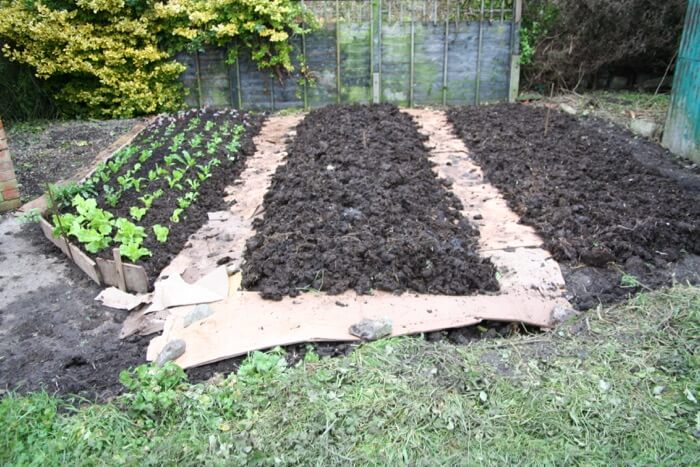
Where to start for your no-dig gardening?
- You should remove weeds from your plot by hoeing or plucking them away.
- You can make mulch from the compost of garden waste, like wood chips or leaves, or manure.
- Divide your vegetable plot into beds, with pathways in between for easy access.
- Plants love it when you plant them or seed them directly into compost mulch.
So, to sum up,
Gardeners rarely identify digging as one of the reasons they do what they do. Even the seemingly mundane task of weeding gives the simple pleasure of reflecting on the progress made. Digging, on the other hand, produces back pain and blisters.
Fortunately, Charles Dowding developed and popularized no-dig gardening method.
Gardeners may use the no dig method to build attractive and profitable gardens without having to dig garden.
In theory, avoiding digging/ no-dig gardening will not harm the soil’s life. These are the microorganisms, fungi, and worms that help feed plant roots.
You will require a large amount of organic stuff. Homemade compost, well-rotted manure, green waste compost, etc. are helpful in growing plants in home.
